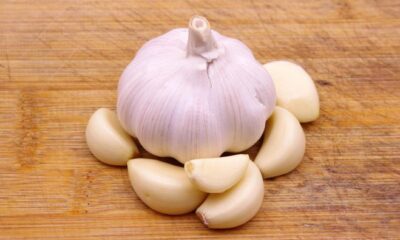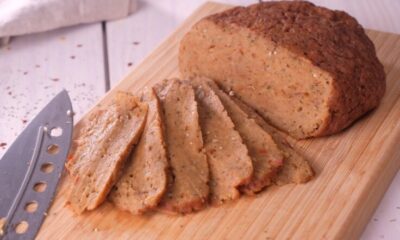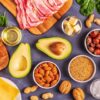The Power of Breakfast: Why It’s the Most Important Meal of the Day
We’ve all heard the phrase “breakfast is the most important meal of the day,” but have you ever stopped to wonder why? Breakfast doesn’t just fuel your morning; it sets the tone for your energy, focus, and overall health throughout the day. While many individuals may skip it due to lack of time or simply not being hungry in the morning, skipping breakfast can have long term effects. Whether you’re a fan of a quick smoothie or a full-fledged breakfast spread, understanding the science behind breakfast can help you make healthier choices.
The Science Behind Breakfast
When you wake up in the morning, your body has been fasting for hours while you sleep. Your blood sugar levels are low, and your metabolism is just starting to kick in. This is where breakfast comes into play. It provides your body with the essential nutrients to help you focus, feel energized and maintain stable blood sugar levels throughout the day.
Skipping breakfast can cause energy dips and disrupt tour metabolism. This can lead to poor decision -making later in the day, particularly when it comes to food choices. Skipping this meal may cause you to overeat at lunch or snack on unhealthy foods which may lead to health issues.
Why is Breakfast So Important?
Skipping breakfast might seem like a time-saver, but it can have long-term consequences. Her are some of the researched benefits of eating a balanced breakfast:
- Boosts Your Metabolism: Eating a balanced breakfast helps jumpstart your metabolism, helping to burn calories more efficiently throughout the day. When you eat within an hour or so of waking up, your body begins converting food into energy, effectively revving up your metabolic rate for the day ahead.
- Improves Cognitive Function: Your brain needs glucose as an energy source to function, and breakfast provides the fuel for this. Skipping breakfast can lead to difficulty concentrating, memory lapses, and irritability. Studies have shown that eating a nutrient-dense breakfast improves focus and memory, especially in children and adolescents, who are actively learning during school hours.
- Helps Control Hunger and Weight: Breakfast can help regulate your appetite for the rest of the day. Skipping it might lead to overeating later on, as your body craves energy to make up for the lost meal. A balanced breakfast with protein, fiber, and healthy fats can help you feel fuller longer, reducing the urge to snack on unhealthy foods.
- Supports Weight Management: Many people mistakenly believe that skipping breakfast can help them lose weight. However, skipping meals often leads to overeating and poor food choices later. Research indicates that eating breakfast regularly can support weight management efforts. When you eat in the morning, you help regulate your appetite throughout the day. So, the next time you consider skipping your morning meal, remember that it’s not about eating less—it’s about eating the right things.
- Reduce Health Risks:Regur breakfast eaters have a lower risk of heart disease, diabetes, and obesity.
Think of your body as a car. Would you drive on an empty tank? Probably not. Breakfast is the fuel that keeps your engine running smoothly.

What Makes a Healthy Breakfast?
Not all breakfasts are created equal. A doughnut and coffee might satisfy your hunger, but cannot provide the nutrients you body needs. The key to a truly healthy breakfast is balance. You want a mix of complex carbohydrates, protein, healthy fats, and fiber. Here is how to build a balanced breakfast that satisfies and energizes:
- Complex Carbohydrates: Foods like whole grains (oats, quinoa, whole wheat) and sweet potatoes are rich in fiber and provide slow-releasing energy. Unlike refined carbs (think sugary cereals or pastries), complex carbohydrates stabilize your blood sugar and keep you feeling fuller longer, so you are less likely to snack excessively later in the day.
- Protein: Protein is essential for muscle repair, immune function, and keeping you full. Eggs, Greek yogurt, cottage cheese, or plant-based protein like tofu or chickpeas are great options. Pairing protein with whole grains or fruits in your breakfast helps balance your blood sugar levels and sustains your energy throughout the day.
- Healthy Fats: Avocados, nuts, seeds, and olive oil are examples of healthy fats that keep you satisfied. A few slices of avocado or a handful of almonds can complement your breakfast. Healthy fats help your body absorb essential vitamins and minerals and give you the long-lasting energy you need.
- Fiber: Fiber-rich foods such as fruits, vegetables, and whole grains help regulate digestion and prevent blood sugar spikes. Berries, apples, and leafy greens are excellent choices to add to your breakfast for a fiber boost.
Breakfast Ideas for Every Taste
No matter your preferences or dietary needs, there’s a breakfast for everyone. Here are a few ideas to get you started:
- For the Sweet Tooth:
- Oatmeal with Fruit and Nuts: Start with a base of rolled oats, add fresh berries or sliced bananas, and top with nuts or seeds for extra protein. A drizzle of honey or maple syrup adds a natural sweetness.
- Smoothie Bowls: Blend up your favorite fruits, a handful of spinach, Greek yogurt, and a splash of almond milk. Top with granola, chia seeds, and a few slices of fruit for texture.
- For the Savory Lover:
- Avocado Toast with Eggs: Toast a whole-grain slice of bread, spread mashed avocado, and top with a poached or scrambled egg. Add a pinch of chili flakes or a drizzle of olive oil for extra flavor.
- Veggie Scramble: Scramble eggs with sautéed vegetables like spinach, bell peppers, and onions. Add a sprinkle of cheese or herbs for an added flavor boost.
- For the Busy Bee:
- Overnight Oats: Combine oats, chia seeds, and your choice of milk in a jar the night before. Let it sit overnight and grab it in the morning for a quick and nutritious breakfast on the go.
- Chia Pudding: Mix chia seeds with almond milk and a sweetener of choice, and let it sit overnight. Top with fresh berries or a handful of nuts in the morning.
The Pitfalls of Skipping Breakfast
Many people skip breakfast in an attempt to lose weight or save time, but this can actually backfire. Here’s why skipping breakfast might not be the best idea:
- Increased Hunger Later: Skipping breakfast often leads to overeating later on, especially when you’re too hungry to make smart choices.
- Blood Sugar Spikes: When you skip breakfast, your body may react by overcompensating and causing larger swings in blood sugar, which can result in energy crashes later on.
- Slower Metabolism: Not eating in the morning can slow down your metabolism, as your body is unsure when it will receive fuel next.
Conclusion
Breakfast isn’t just a meal; it’s an opportunity to fuel your body, boost your metabolism, and set the stage for a productive day. By choosing a well-balanced breakfast rich in whole foods like fiber, protein, and healthy fats, you can make the most of this important time of day.
So, next time you think about skipping breakfast, remember that this small but powerful meal can have a lasting impact on your health and well-being. Whether you prefer sweet or savory, quick or leisurely, there’s a breakfast out there for everyone. Eat well, feel great, and start your day off right.




















